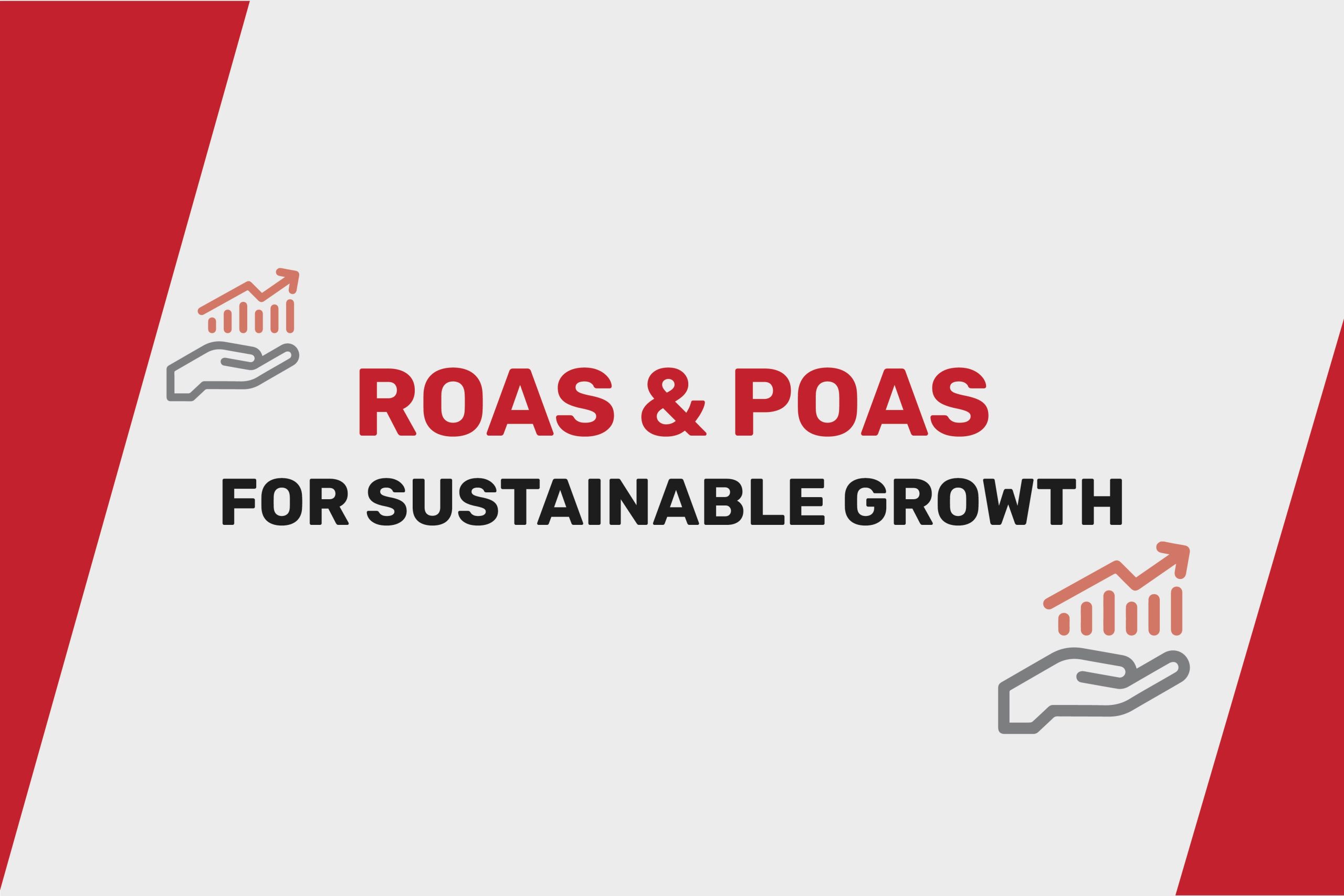|
Getting your Trinity Audio player ready...
|
In today’s fast-paced digital landscape, businesses are constantly seeking innovative ways to expand their reach and profitability. One such approach that has gained immense popularity in recent years is growth marketing. But what exactly is growth marketing, and how can it benefit your business? In this comprehensive guide, we’ll break down the fundamentals of growth marketing and provide you with valuable insights to help your business thrive in the competitive world of digital marketing.
Growth marketing is not just another buzzword in the marketing world; it’s a dynamic approach that has the potential to transform the way your business grows. It’s all about adopting data-driven strategies, constantly experimenting, and focusing on the customer journey. So, let’s dive in and uncover the secrets of this powerful marketing discipline.
Read: Benefits of Implementing Growth Marketing
Understanding the Basics of Growth Marketing
What is Growth Marketing?
Growth marketing is a marketing strategy that prioritizes business growth as its primary objective. Unlike traditional marketing, which often focuses on brand awareness and customer acquisition, growth marketing is more holistic. It encompasses the entire customer journey, from acquisition to retention, and aims to optimize every step of the way.
How is it Different from Traditional Marketing?
Traditional marketing relies on established practices and channels, such as television advertising, print media, and billboards. While these methods can be effective, they often lack the precision and measurability that growth marketing offers. Growth marketing leverages digital channels, big data, and analytics to fine-tune marketing efforts, ensuring a higher return on investment.
Read: 360° Marketing: All about the campaign and its core aspects
The Core Principles of Growth Marketing
Data-Driven Decision Making
At the heart of growth marketing is data. By analyzing customer data and behaviour, businesses can make informed decisions about their marketing strategies. This data-driven approach enables continuous optimization, leading to more effective campaigns and better results.
Experimentation and A/B Testing
Growth marketers are not afraid to take risks and experiment. A/B testing, in which two versions of a campaign are compared to determine which performs better, is a common practice. This method allows marketers to refine their strategies based on real-world performance.
Creating a Growth Marketing Strategy
1. Defining Your Goals and KPIs
Before diving into growth marketing, it’s essential to set clear goals and key performance indicators (KPIs). Whether it’s increasing website traffic, boosting conversion rates, or expanding your customer base, well-defined objectives guide your marketing efforts.
2. Customer Segmentation
Understanding your target audience is crucial. Growth marketing involves segmenting your audience based on demographics, behavior, and preferences. This allows for personalized marketing efforts that resonate with different customer groups.
3. Channels and Tactics
Selecting the right marketing channels and tactics is a critical decision. Growth marketers choose channels that align with their audience’s preferences, whether it’s social media, email marketing, or content marketing. A multi-channel approach is often the key to success.
The Customer Journey in Growth Marketing
Growth marketing divides the customer journey into five stages:
1. Acquisition
This is the first stage where customers discover your brand. Effective acquisition strategies ensure that your target audience finds your business through various channels.
2. Activation
Activation involves turning a visitor into an engaged user. It’s about providing a smooth onboarding experience and convincing users to take a desired action, such as signing up for a newsletter or creating an account.
3. Retention
Once you’ve acquired and activated users, the next challenge is retaining them. Effective communication and a valuable customer experience are crucial in this phase.
4. Referral
Happy customers often become brand advocates. Growth marketing encourages referrals, turning satisfied customers into promoters of your business.
5. Revenue
Ultimately, the goal of growth marketing is to increase revenue. By optimizing each stage of the customer journey, you can maximize your income.
Tools and Technologies for Growth Marketers
Analytics Platforms
Analytics tools provide valuable insights into customer behaviour, helping you make data-driven decisions. Popular tools include Google Analytics, Mixpanel, and Kissmetrics.
Read: Guide to Setting Up Google Analytics 4 (GA4)
Marketing Automation Software
Marketing automation streamlines repetitive tasks, such as email marketing and lead nurturing. Growth marketers commonly use platforms like HubSpot and Marketo.
Measuring Success in Growth Marketing
1. Key Performance Indicators (KPIs)
KPIs are essential for tracking the success of your growth marketing efforts. These metrics provide insight into how well your strategies are performing.
2. A/B Testing
A/B testing allows you to experiment with different approaches and determine which one works best.
3. User Metrics
Understanding user behaviour and preferences is critical to tailoring your marketing efforts.
4. Customer Lifetime Value (CLV)
CLV helps you estimate the long-term value of a customer and optimize your marketing accordingly.
Challenges and Pitfalls in Growth Marketing
1. Overlooking Customer Experience
Focusing solely on growth without considering the customer experience can lead to churn and negative feedback.
2. Ignoring Data Privacy
Data privacy is a hot topic, and failing to handle customer data ethically can damage your reputation.
3. Focusing Solely on Acquisition
Neglecting customer retention and referral can stunt your business’s long-term growth potential.
4. Neglecting Experimentation
Growth marketing thrives on experimentation. Avoiding this can result in missed opportunities for optimization.
Success Stories in Growth Marketing
Airbnb: A Master of Referral Marketing
Discover how Airbnb leveraged the power of referral marketing to grow into a global hospitality giant.
Dropbox: The Power of Product-Led Growth
Explore how Dropbox’s product-led growth strategy revolutionized cloud storage.
Spotify: Personalization at Its Best
Learn how Spotify’s data-driven personalization keeps users engaged and loyal.
The Future of Growth Marketing
Trends and Predictions
The future of growth marketing is filled with exciting trends, from AI-powered marketing to personalized customer experiences. We’ll look ahead and discuss what’s on the horizon. Growth marketing is here to stay. It’s a dynamic, data-driven approach that adapts to the ever-changing digital landscape. By embracing the pillars of growth marketing and crafting a strategy tailored to your business, you can harness its potential for sustainable growth.
How to Get Started with Growth Marketing
1. Building a Growth Team
Creating a dedicated growth team is crucial for implementing growth marketing successfully.
2. Tools and Resources
Discover the essential tools and resources you’ll need to kickstart your growth marketing efforts.
3. Developing a Growth Strategy
Learn how to craft a growth strategy that aligns with your business goals and target audience.
4. Scaling Your Efforts
As you see success, scaling your growth marketing efforts is the next logical step.
Conclusion
In conclusion, Growth marketing is not just a buzzword; it’s a transformative approach that can skyrocket your business. By embracing its principles and strategies, you can navigate the complex world of modern marketing with confidence, adaptability, and a focus on long-term growth.
FAQs About Growth Marketing
Is growth marketing suitable for all types of businesses?
Growth marketing can be applied to various industries and businesses of different sizes. However, the specific strategies may vary depending on your goals and target audience.
How long does it take to see results with growth marketing?
The timeline for seeing results in growth marketing can vary widely. Some strategies may yield quick results, while others require patience and continuous effort.
Is growth marketing only about online marketing and digital channels?
While growth marketing often heavily utilizes digital channels, it can also incorporate offline strategies, depending on your business’s nature and target audience.
What are some key performance indicators (KPIs) in growth marketing?
KPIs in growth marketing may include customer acquisition cost (CAC), customer lifetime value (CLV), conversion rate, churn rate, and more, depending on your objectives.
Can I implement growth marketing on a limited budget?
Yes, growth marketing strategies can be tailored to various budget levels. It’s more about efficient resource allocation and optimization.





